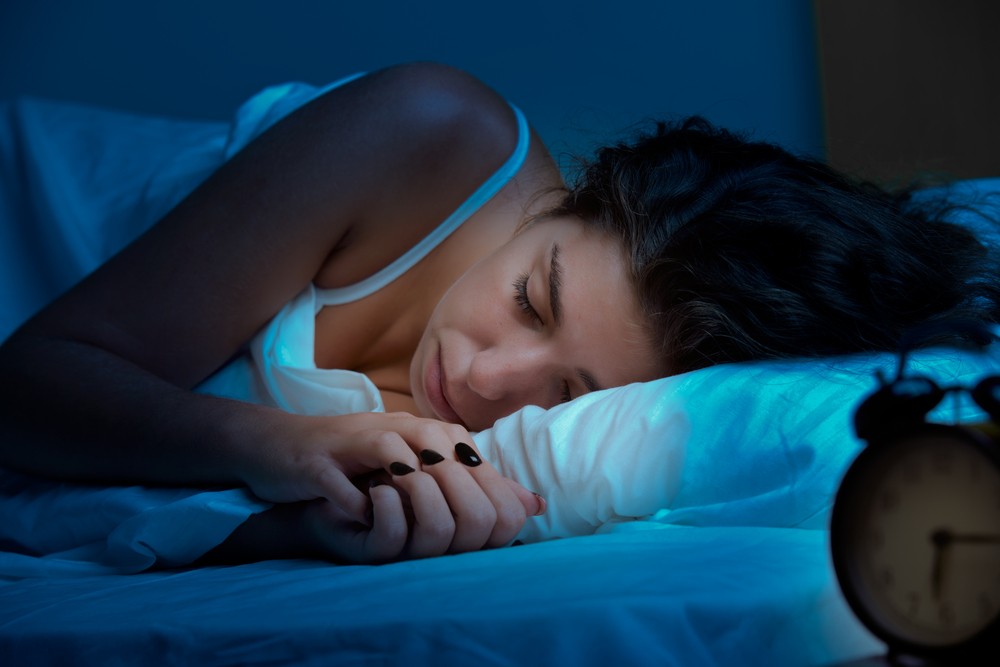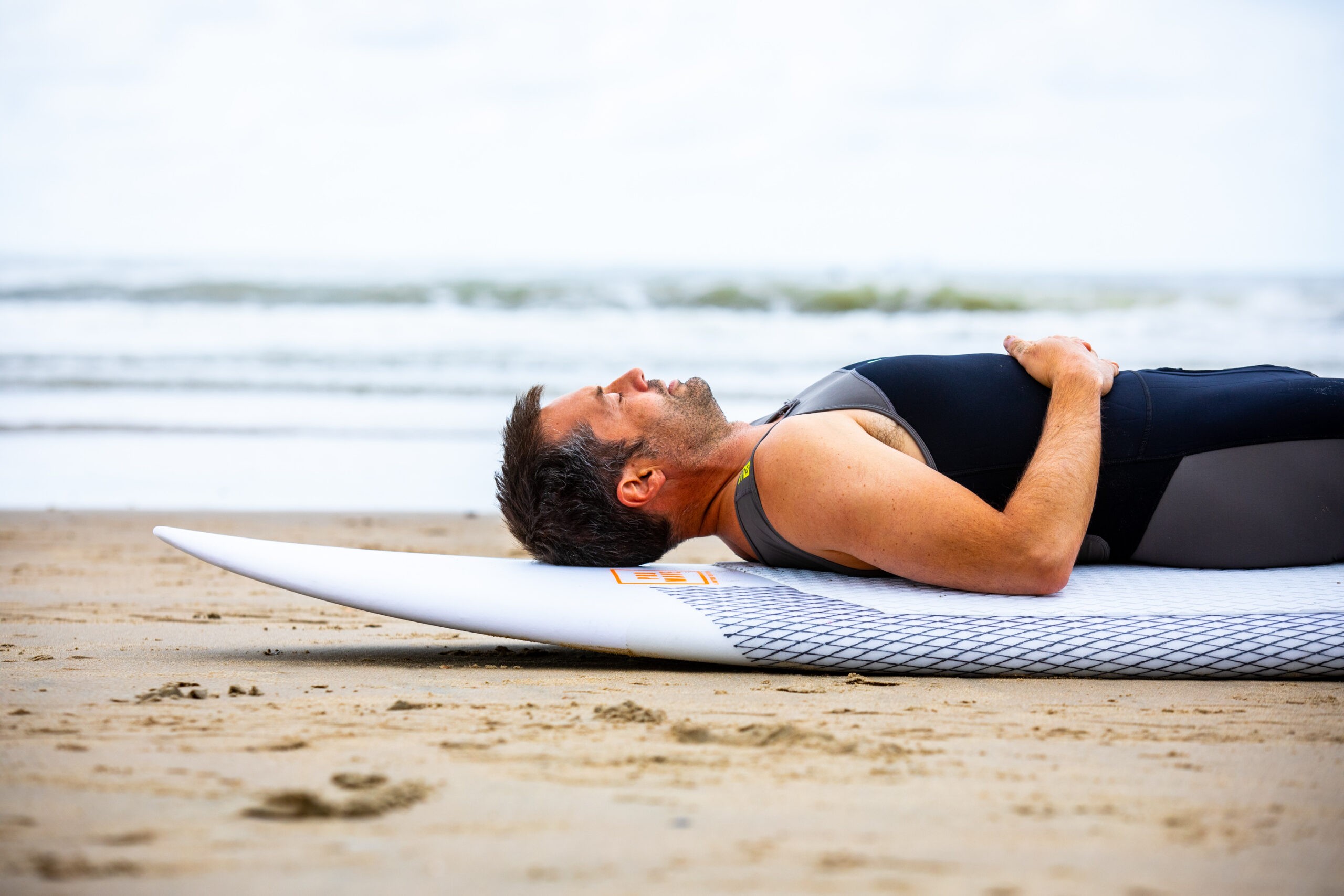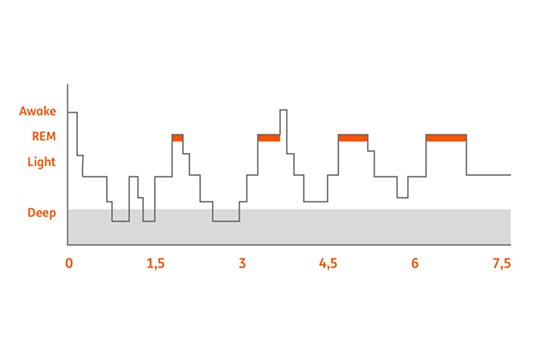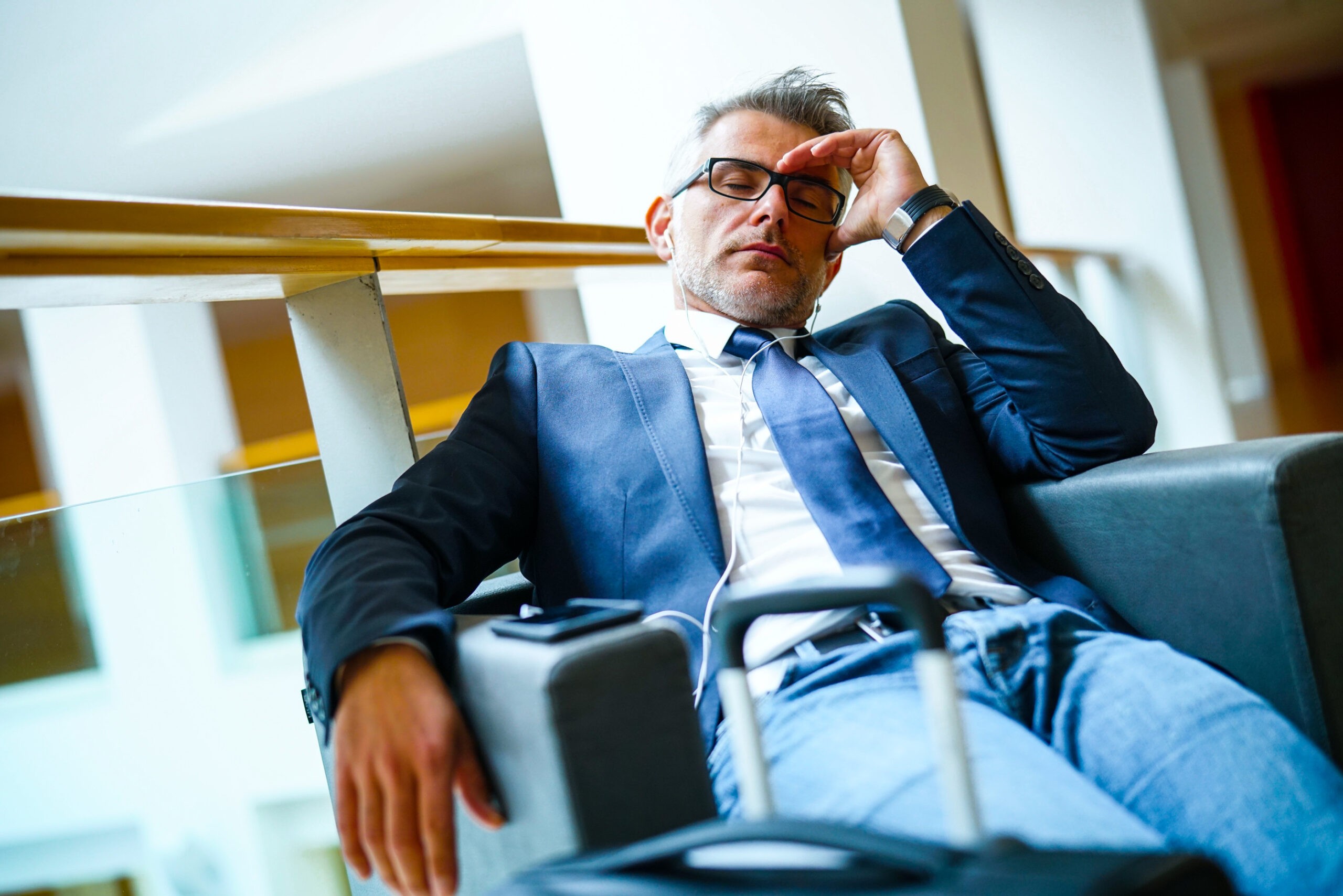How to Sleep Like a Baby
How do you make those hours in bed stretch further? There are many strategies to improve your sleep. Getting good sleep is essentially about your behavior and patterns leading up to sleep. Good sleep hygiene makes you fall asleep faster and maintain a higher quality of sleep.

Because it’s pretty hard (if not impossible) to follow all the recommendations in real life, it’s best to identify the issues that are most disruptive to your sleep and focus on changing a few habits, which can help you overcome them. Choose the strategies that are easy to do. Give it a few weeks and experience if and how they work for you.
Tip 1 – Go to bed on time.
That’s the obvious thing to do! This may not always be possible, but getting just 30 minutes of extra sleep per day, especially if it’s before midnight, can make a big difference in how you feel and function, especially if you have to get up early in the morning. Your grandmother already knew that the hours before midnight count ‘double’. Well, maybe not exactly double, but the sleep you get between 10pm and 2am do much more for you in terms of physical recovery.
It is in these hours that the first few episodes of deep sleep take place, and it is when most of the growth hormone is released. Growth hormone promotes a healthy metabolism, and plays a key role in your physical recovery. It enhances your physical performance, and may even help you live longer. When you go to bed later, compared to your normal bedtime, there is no surge in growth hormone release. Too little growth hormone can negatively impact your metabolism by disrupting the levels of other hormones and lead to an imbalance between tissue building and breakdown. So, if you want to be fully energized and stay younger longer, start going to bed on time!
Stop working late. Although it may feel great to burn the midnight oil, finishing off work that’s important to you, it’s not exactly smart to use the extra energy you may often experience late at night, for work. Your body needs this time and energy to keep up its internal housekeeping; repairing, strengthening and rejuvenating itself. Working late will not only diminish your recovery, it will also often keep you in the high-energy mode, which makes it harder to get in the relax mode. This leaves you with less sleep time and lower quality sleep, making you feel even more tired the next day.
Tip 2 – Keep a regular schedule.
Go to bed and get out of bed at the same time as much as possible. When you do stay up late, on weekends for example, make an effort to get out of bed at the same time as you do during the week. Try to go outside to catch some natural sunlight, or into bright, artificial light, in the morning. This will help your biological clock to stay in tune. If you insist on sleeping in on the weekend, do so for a maximum of one hour. This way you don’t mess with your biological clock and won’t have extra trouble falling asleep on Sunday evening. Another good alternative for sleeping in is taking an early afternoon nap, which allows you to lower your sleep pressure without disturbing your natural sleep- wake rhythm.
Tip 3 – No coffee after tea time.
Drink your days’ worth of coffee (max 3-4 cups) before lunch. If you must have a coffee after lunch to counter your after-lunch dip, then have it straight after lunch. Don’t drink caffeine after 4 pm, because it takes up to six hours for half of the caffeine to leave your system. The other half takes even longer and can have a negative impact on your sleep.
Tip 4 – Minimize alcohol.
A glass of wine at dinner or a few beers with friends after work (no more than two) should not be a problem for most people when it comes to getting enough high-quality sleep later at night, especially when you combine it with drinking plenty of water. It’s important though to stop drinking at least three to four hours before you go to bed. This way your blood alcohol concentration has time to drop before you go to sleep. When you do have one or two drinks too many, then eat something before you go to bed. This slows down the absorption of alcohol, which can help lower the concentration of alcohol in your blood, and thus lessen the effect it has on your sleep.
Tip 5 – Get active.
People who are more active during the day, sleep better at night. Partly because physical activity reduces stress, which makes it easier to fall asleep. But even more so because it has the unique power to increase the time you spend in deep sleep. This means it can directly add to your recovery during the night and thus the feeling of waking up more refreshed the next day.
Tip 6 – Get ready for sleep.
Create a relaxing bedtime routine and allow yourself to slow down. Take a hot bath, read a book, meditate, listen to some music. Whatever it is, do something that relaxes you, and do it outside of your bed. Your bed is for sleeping and for sex.
Taking a hot bath for 20 minutes or so will increase your body temperature at first, but after you get out, the cooldown relaxes you. Your body temperature drops, making it easier to fall asleep.
Don’t exercise at night, even if you find this relaxing. Going for a walk is perfectly fine, but when you start to really work out, your body temperature will rise. Combined with the secretion of stress hormones such as cortisol, this will make it harder for you to fall asleep.
Clear your head. It’s important to take some time to slow down after a long, busy day. You might be going over the events of the day, while you are trying to wind down, or just feel a little excited or anxious about something. Making a brief note about it on paper can help you to postpone worrying about it until the next day. If you are really stressed, angry, or worried about something, plan for ‘de-stressing’ earlier on in the evening. There are many ways to clear your head. Please see Get the Most out of your Downtime for stress management techniques that have been proven to work.
Put away your mobile.Most people will sleep better if their bedroom is free of mobile phones and other electronic devices. The fact that you can eliminate the blue light from the screens of your mobile phones doesn’t mean they don’t mess with your sleep. Honestly, when you go to sleep what is the last thing that you touch? As it turns out, for many people it is usually their mobile. While it might seem relaxing to scroll through the day’s events on Facebook, Instagram or LinkedIn, or scan tomorrow’s activities in your Outlook, it is generally not relaxing at all, simply because of the many thoughts and feelings which are triggered by the information – causing you to be more alert, think more and possibly worry more, making it much harder to fall asleep. Or as sleep researcher Chris Barns sums it up: “You fall asleep later, you get less sleep, the next day your go to work tired and you are lower in work engagement, working less the next day”.
Tip 7 – Create a relaxing atmosphere.
Make sure your bedroom is tidy and quiet when you go to sleep. If possible, open a window for fresh air. Keep your room cool, ideally the temperature should be somewhere around 19 degrees Celsius (65 Fahrenheit). Especially if you have a hard time falling asleep in general, lowering your room temperature may be of great help. Your body temperature follows a circadian rhythm; it lowers during the night, which stimulates the onset of sleep and helps you staying asleep throughout the night. A few hours before you wake up, your body temperature rises, stimulating you to wake up. Keeping your room temperature low can help with this process.
Keep your bedroom really dark. Any day or streetlight, or even a full moon creeping into your bedroom can disturb your sleep. So invest in good curtains and keep them closed while you are sleeping. If you can’t eliminate noise from traffic or neighbors, then try masking it with a fan or any other form of ‘white noise’. Earplugs may also help.
Remove all screens from your bedroom. While it might seem like a great idea to fall asleep while watching your favorite TV series, this really is not going to improve your sleep; you’re tired, and your ‘top-down-control’ has gone to bed with you, so chances are high that will you allow yourself to watch ‘one more’ episode. And when the TV is in your bedroom, it is very comfortable to watch for too long. What’s more, if you fall asleep during an episode, your sleep will be deprived by the blue light of the screen.
Invest in a good bed. We all have our preferences when it comes to our beds and mattresses, and it’s impossible to generalize in terms of the kind of bed that we all need. But there are a few basics all our beds need to have. First of all, your mattress needs to give enough support and at the same time follow the curves of our spine. Second, you need space. Bigger is better. Third, make sure you renew your mattress regularly. Although life expectancy of beds, and especially mattresses, may vary, most of them deteriorate significantly over a period of eight to ten years. Meaning that you are more likely to suffer from aches and pains and feel less rested when you wake up.
Tip 8 – Monitor your sleep.
If you want to get a better idea of the quantity & quality of your sleep, your mobile can help you do so. Nowadays, there are quite a few apps on the market which monitor sleep, using your phone’s accelerometer to track your movements while you sleep. Measuring the time spent in different (estimated) stages of sleep, they can create insights into your sleep time, quality and efficiency, and they can adjust your wake-up alarm to go off when you are in a light sleep cycle, making it easier to wake up. Both functionalities can be of great value.
Although new apps are released every day, two of the ‘oldest’ are still among the most popular today: Sleep Cycle and Sleeptime. Both have proven to be of value to millions of people. However, turn on ‘flight mode’ to ensure that you won’t be disturbed by any messages, sounds or small associated flashes of light. This might also add to the feeling of ‘being offline’, which for many helps sleeping better.
If you know that just by ‘being close to your mobile’ you tend to be more excited or anxious, I advise you to leave your phone outside of your room. You can always use an activity tracker or smart watch to monitor your sleep. As a bonus, they generally offer more accuracy, compared to your mobile phone.
If you don’t want to worry about putting on a tracker, or are in the habit of charging it when you sleep, then it can pay off to invest in a ‘Sleep pad’ that you can slip under your mattress to keep a track of your sleep without having to wear anything on your wrist. They usually also help you track your breathing, and possible snoring, and offer feedback on the temperature and humidity in your bed, which can help you to optimize your sleep environment.
Tip 9 – Get out of your bed if you cannot sleep.
If you’re lying awake for more than 15 minutes, get up and go to another room. Lying in your bed any longer isn’t going to help. Doing something else for a little while will help you to shake off what’s keeping you awake. This is important; the longer you stay in bed, the more you risk tossing and turning all night. And when this happens, your body and mind stop recognizing your bed as a restful place.
Tip 10 – Give it some time.
Some of these strategies will be easier to include in your daily and nightly routine than others. However, if you stick with them, your chances of achieving more high-quality sleep increase.
Note. While good sleeping habits can have a profound impact on the quality of you sleep, they don’t guarantee good sleep per se. If your sleep does not improve significantly after applying these strategies, then there might be something else, a clinical problem for instance, that is keeping you awake. In that case you want to consult your physician or a sleep specialist.


